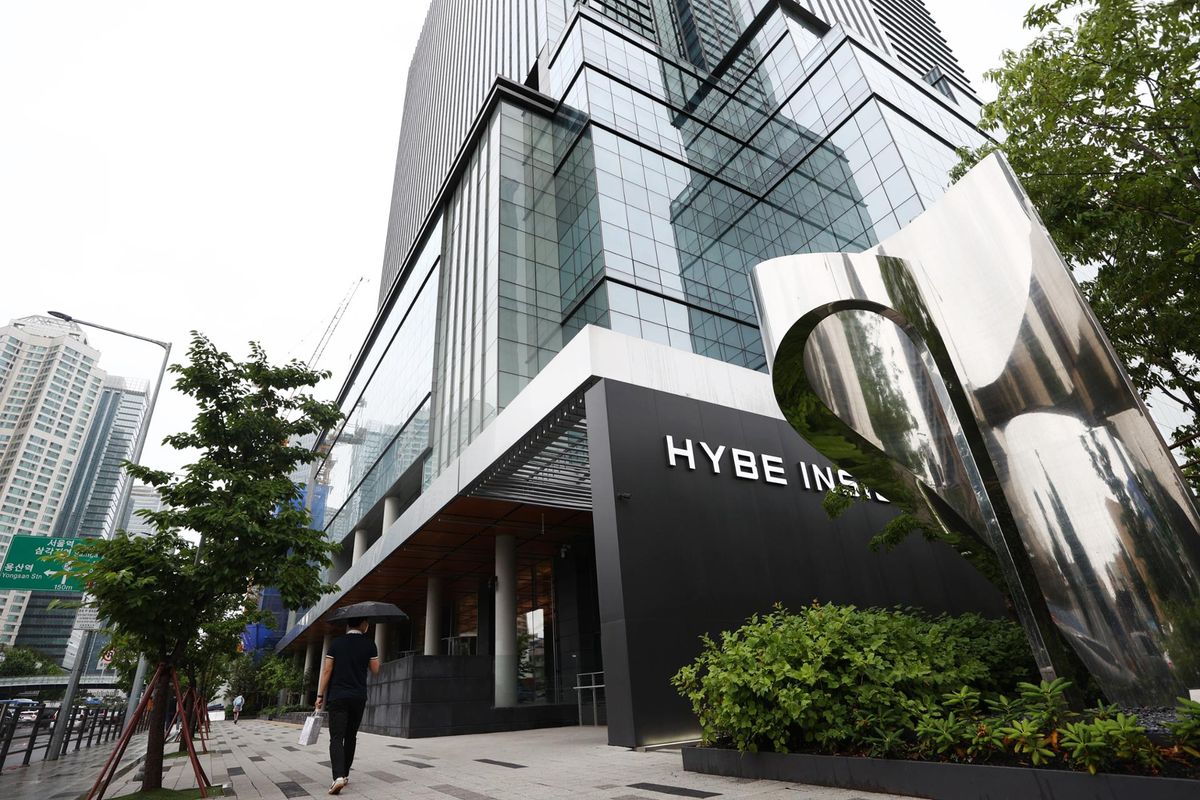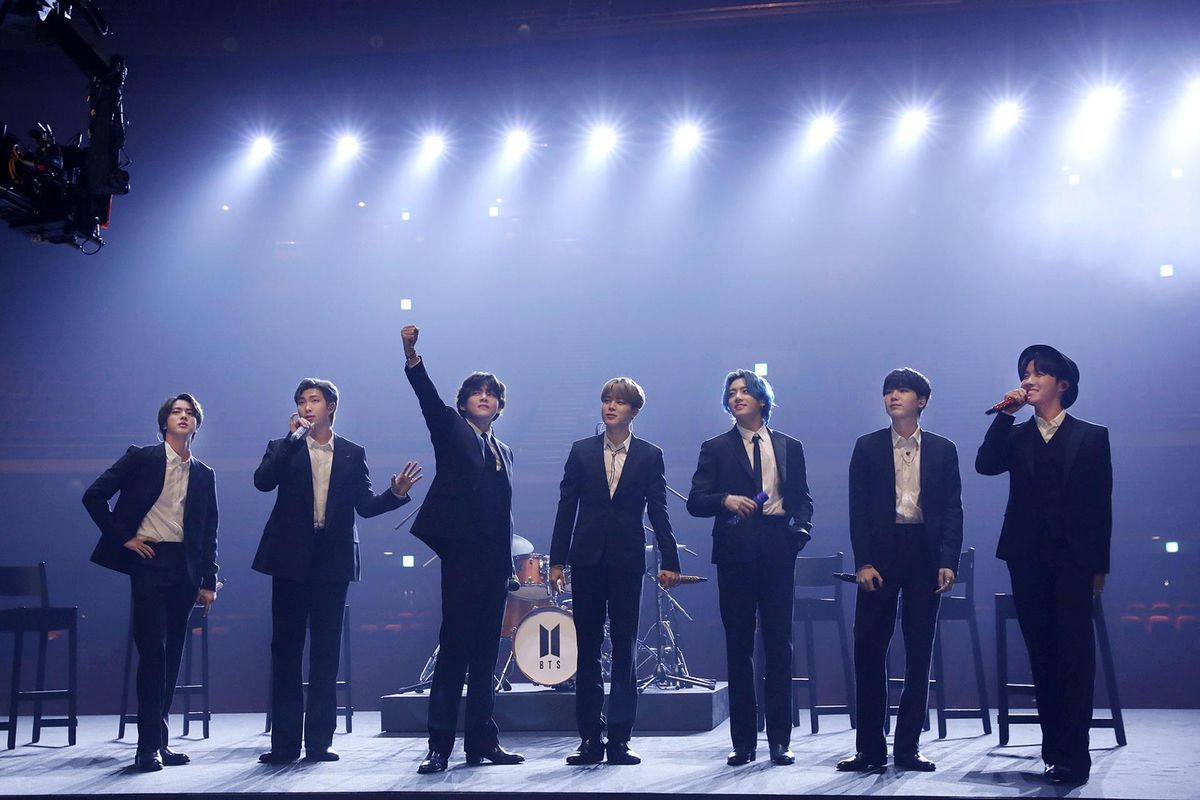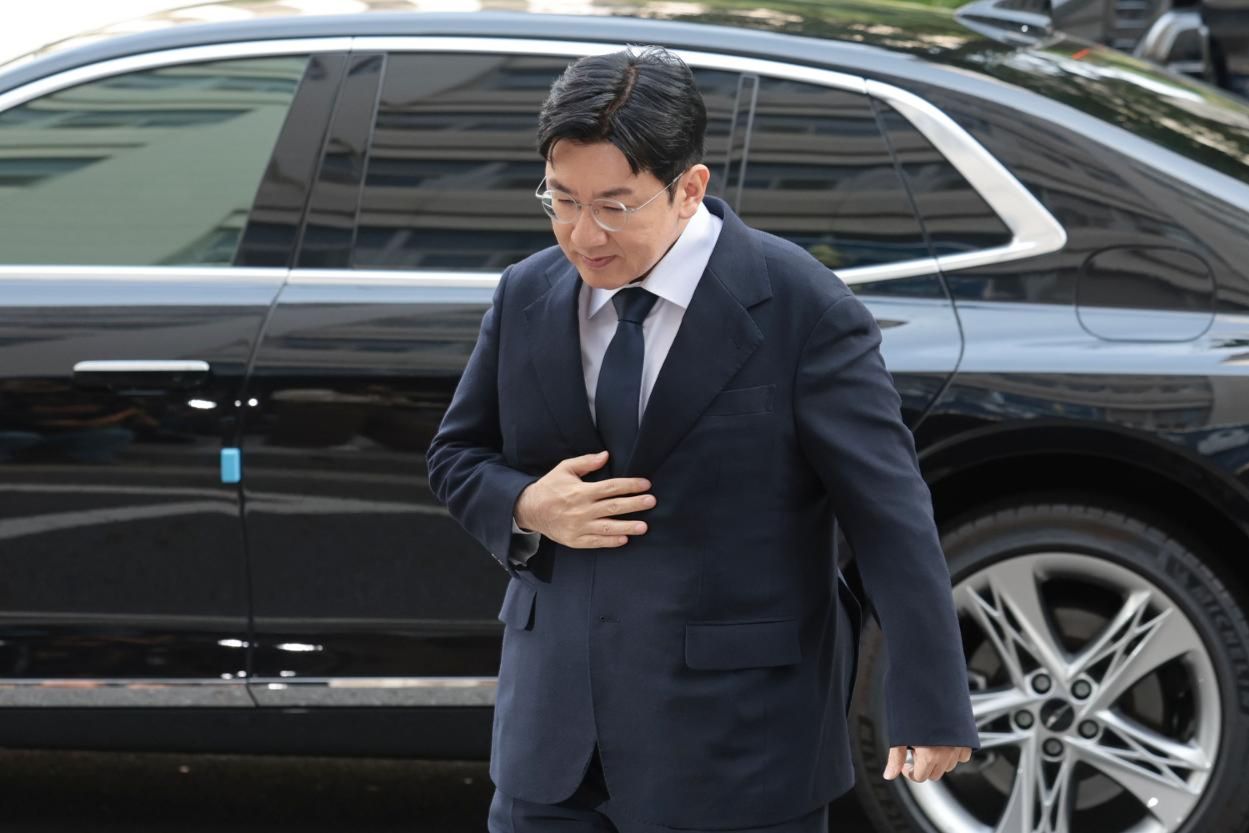Bang Si-hyuk, the founder and chairman of HYBE sometimes dubbed the “father of K-pop,” is facing what could be his greatest crisis yet, as police, prosecutors and financial authorities investigate him for alleged fraudulent trading under the Capital Markets Act.
At the heart of the probe is whether Bang concealed HYBE’s initial public offering (IPO) plans from existing shareholders and reaped illicit profits by using a private equity fund tied to a close associate.
The fund allegedly earned more than 100 billion won ($73 million) in gains around the time HYBE — then Big Hit Entertainment — went public in October 2020.
Authorities suspect Bang misled early investors into selling their stakes cheaply before the IPO, while HYBE maintains the profit was a result of “business judgment and luck,” not deception.
Whether IPO plans were hidden from investors
Bang first mentioned the possibility of taking the company public in 2017, telling Bloomberg at the time that he was “discussing an IPO with early investors such as Legend Holdings and LB Investment.”
HYBE began its formal listing preparations in 2019, applying for a designated audit that August and selecting underwriters in January 2020. A designated audit refers to a system in which a company asks the Financial Supervisory Service (FSS) to appoint an external auditor rather than selecting one on its own.
Based on the audit results, HYBE filed for a preliminary listing review in May 2020 and successfully debuted on the KOSPI that October.
Controversy arose because some existing shareholders sold their HYBE shares during this period to Stick Investment and Eastone Equity Partners for around 30,000 to 40,000 won each.
Just a year later, the IPO price was set at 135,000 won — roughly one-quarter of the public offering price and one-eighth of the first-day closing price of 258,000 won.
Police and financial regulators differ from HYBE over the meaning of the “designated audit application.” Investigators believe that HYBE’s letter to shareholders at the time — assuring them there were “no immediate plans for an IPO” — constituted active deception.
They argue that applying for a designated audit is a clear signal that a company has entered the listing process, making it hard to accept HYBE’s claim that attracting overseas investors was its top priority instead.
HYBE, however, argues that it was still exploring multiple funding options, including attracting overseas investment, particularly from Japan’s SoftBank Ventures. The company said the IPO plan was only confirmed later due to market changes and investment shortfalls.
HYBE also said that revealing IPO intentions too early could have misled investors and that early shareholders were aware of the audit request process.

The headquarters of HYBE, the agency of K-pop supergroup BTS, in Yongsan District, Seoul / Yonhap
Dispute over ‘planned fund’ vs. ‘last-minute rescue investor’
Another key point of contention is that Eastone Equity Partners — the fund that purchased shares from HYBE’s existing investors — was established by Kim Joong-dong, a longtime acquaintance of Bang.
Police suspect Bang recruited Kim to set up a so-called “specially arranged fund” that secretly bought shares from early shareholders. Kim, formerly of SV Investment, was one of the early backers of HYBE in 2011 and later served as an outside director at the company. He then joined the newly founded Eastone Equity Partners, helping to form the fund and oversee the purchase of HYBE shares.
Share transactions among investors took place over roughly 2 years — beginning in October 2018, when Stick Investment acquired shares from LB Investment, and continuing through November 2019, when funds managed by Eastone Equity Partners and New Main Equity bought an additional 8.7 percent stake from existing shareholders.
HYBE, however, insists that the transactions were not designed for Bang’s personal gain but were rather a “last-resort rescue investment” he managed to secure amid unfavorable market conditions. According to the company, early shareholders had already expressed their intention to sell, and Bang sought buyers to stabilize the firm’s ownership.
At the time, HYBE’s heavy dependence on BTS revenue and uncertainties surrounding the members’ military service had deterred other investors.
The company says two U.S.-based private equity firms and one Japanese investor conducted due diligence but ultimately withdrew. It was then that Bang turned to Kim and his associates — longtime investors familiar with HYBE’s vision and the entertainment industry — to step in as financiers.
Profit-sharing deal under scrutiny
Investigators are also examining a shareholders’ agreement under which Bang reportedly received 30 percent of Eastone’s profits after the IPO — estimated at around 120 billion won.
Police believe Bang used this indirect structure to bypass a lock-up restriction that prevented him from immediately selling his own shares.
HYBE counters that the arrangement was a high-risk, high-return deal proposed by the fund to offset potential losses if the IPO failed.
Bang would have been obligated to repurchase the shares at a higher price under a put option, the company said, insisting the actual windfall resulted from unforeseen circumstances — notably the global success of the 2020 BTS hit song “Dynamite” and a liquidity surge during the pandemic.
While HYBE argues the value jump from 2 trillion won to 3.8 trillion won was largely “unpredictable,” police contend that by 2019 BTS was already a global phenomenon, and Bang could reasonably foresee that the group’s upcoming releases would boost HYBE’s market appeal.

BTS members stand on stage at Kyung Hee University’s Peace Hall in Seoul, March 12, 2021. Courtesy of BigHit Music
Omission from filings and next steps
The FSS concluded that Bang’s profit-sharing deal should have been disclosed in HYBE’s securities registration statement, viewing the omission as “fraudulent trading” that harmed earlier investors.
HYBE maintains the omission was not intentional, noting that the agreement was provided to its underwriter and that disclosure requirements for such contracts were not in effect at the time.
The company also says previous shareholders made substantial profits before the IPO and that HYBE’s stock price has never fallen below the offering price, meaning no retail investors incurred losses.
The Financial Services Commission’s Securities and Futures Commission has referred the case to prosecutors after finding sufficient grounds for charges. Police, meanwhile, have searched HYBE’s offices, questioned Bang twice and imposed a travel ban — signaling that the case is nearing a decisive phase.
Whether the court sees Bang’s timing as opportunistic foresight or legitimate business acumen — particularly regarding when the success of BTS became “predictable” — will likely determine his fate.
This article from the Hankook Ilbo, the sister publication of The Korea Times, is translated by generative AI and edited by The Korea Times.

